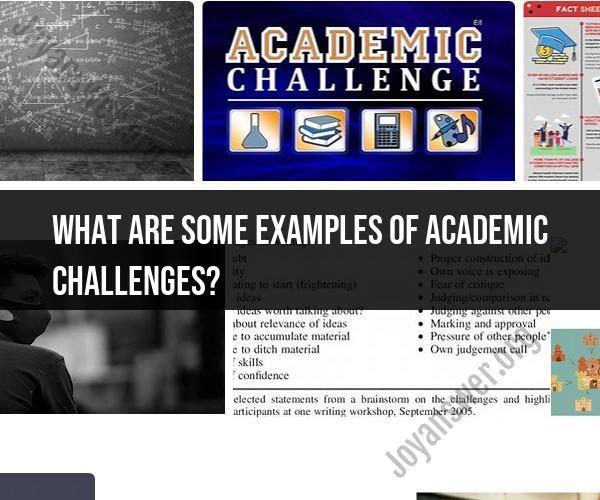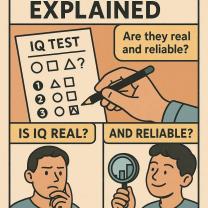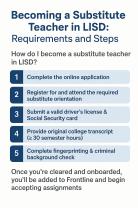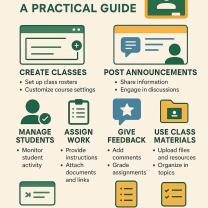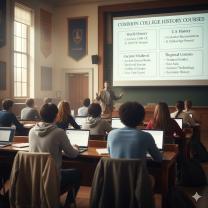What are some examples of academic challenges?
Students can face a variety of academic challenges throughout their educational journey. These challenges can stem from personal, social, or educational factors and can affect students at different levels of education. Here are some common examples of academic challenges faced by students:
Time Management: Many students struggle with managing their time effectively. Balancing coursework, assignments, exams, extracurricular activities, and personal life can be challenging.
Procrastination: Procrastination is a common issue among students. Delaying tasks can lead to last-minute cramming, increased stress, and subpar academic performance.
Study Skills: Some students may not have developed effective study skills, such as note-taking, reading comprehension, or test-taking strategies, which can impact their ability to retain and apply knowledge.
Difficulty with Specific Subjects: Students may find certain subjects or topics more challenging than others. This could be due to a lack of interest or difficulty grasping the concepts.
Learning Disabilities: Students with learning disabilities, such as dyslexia or ADHD, may face challenges related to reading, writing, organization, and concentration.
Language Barriers: For students whose first language is not the language of instruction, language barriers can hinder understanding, communication, and academic performance.
Test Anxiety: Anxiety related to exams and tests can affect a student's ability to perform well. Test anxiety may lead to difficulty concentrating, memory lapses, or poor performance despite adequate preparation.
Financial Stress: Financial challenges, including the cost of education and living expenses, can affect a student's ability to focus on their studies.
Health Issues: Physical or mental health issues can disrupt a student's academic progress. Chronic illnesses, mental health disorders, or unexpected health crises can lead to missed classes and assignments.
Social and Peer Pressure: Social factors, such as peer pressure, relationships, or bullying, can create stress and distraction, impacting a student's academic performance.
Lack of Motivation: Some students may struggle with motivation, especially if they do not see the relevance of their coursework to their future goals.
Technology Distractions: The ubiquity of technology and digital devices can be distracting, leading to reduced productivity and focus during study sessions.
Heavy Workloads: Students in advanced or demanding programs may face heavy workloads that can be overwhelming, leaving little time for extracurricular activities or personal life.
Unsupportive Environment: An unsupportive home or academic environment can make it difficult for students to concentrate and succeed academically.
Cultural Adjustment: International students may face challenges related to adjusting to a new culture, language, and educational system.
It's important to recognize that academic challenges are common and can be overcome with the right support and strategies. Students who encounter these challenges may benefit from seeking help and resources, such as tutoring, counseling, time management workshops, and academic advising. Additionally, developing effective study habits and seeking a balanced lifestyle can contribute to academic success.
Academic Challenges: Types and Examples
Academic challenges can be any obstacle that interferes with a student's ability to learn and succeed. There are many different types of academic challenges, but some of the most common include:
- Learning disabilities: Learning disabilities are neurological conditions that make it difficult for students to learn in the same way as their peers. Some common learning disabilities include dyslexia, dysgraphia, and dyscalculia.
- Mental health challenges: Mental health challenges such as anxiety, depression, and ADHD can also make it difficult for students to succeed in school.
- Time management challenges: Many students struggle to manage their time effectively, which can lead to missed assignments and poor grades.
- Study skills challenges: Some students may not have the study skills necessary to succeed in school. This can include things like not knowing how to take effective notes, prepare for exams, or manage their workload.
- Lack of motivation: Some students may lack the motivation to succeed in school. This can be due to a variety of factors, such as personal problems, family issues, or a lack of interest in the subject matter.
Navigating Educational Obstacles: Understanding Academic Challenges
It is important to understand the different types of academic challenges that students face in order to help them navigate educational obstacles. Once a challenge has been identified, there are a number of things that can be done to help the student overcome it.
For example, if a student has a learning disability, they may be eligible for special education services. These services can provide the student with the extra support they need to succeed in school. If a student is struggling with mental health challenges, they may benefit from counseling or other mental health services.
Time management and study skills challenges can be addressed through a variety of resources, such as workshops, tutoring, and online learning tools. If a student is lacking motivation, it is important to talk to them about their goals and interests and help them to find ways to make school more relevant to their life.
Overcoming Hurdles: Examples of Academic Challenges
Here are some examples of how students have overcome academic challenges:
- A student with dyslexia was able to succeed in school by using assistive technology such as text-to-speech software and audiobooks.
- A student with ADHD was able to improve their grades by taking medication and using time management strategies.
- A student who was struggling with math was able to get help from a tutor and improve their grades significantly.
- A student who was lacking motivation was able to find a mentor who helped them to set goals and stay on track.
If you are facing an academic challenge, remember that you are not alone. There are many resources available to help you succeed. Talk to your teacher, counselor, or another trusted adult about your challenges and they can help you to develop a plan to overcome them.
